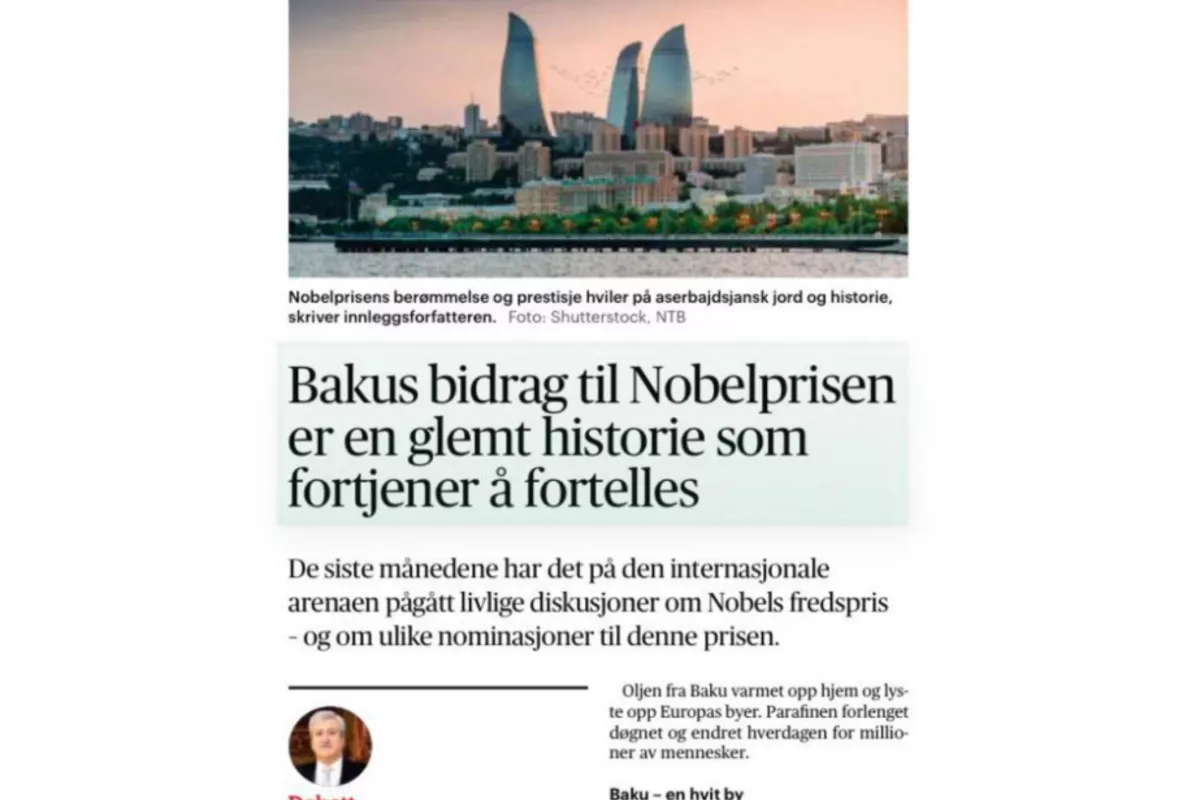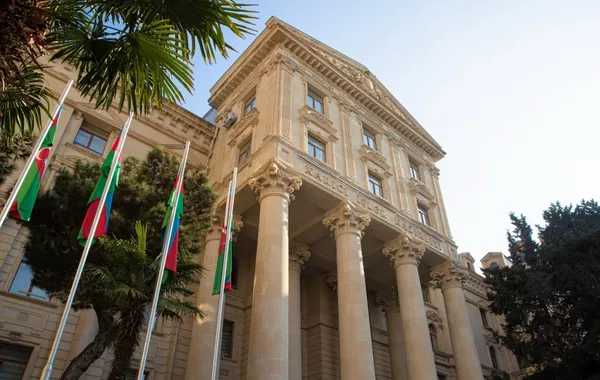
photo: AZERTAC
The Norwegian newspaper Aftenposten has published an article by Azerbaijan’s Ambassador to Norway, Zaur Ahmadov, bringing attention to a lesser-known aspect of Nobel Prize history - its connection to the city of Baku.
In the article, Ambassador Ahmadov reminds readers that a significant portion - around one-third - of the capital that funded the Nobel Prize was derived not just from dynamite, but also from oil, the 19th-century “black gold” extracted from Baku, The Caspian Post informs via local media.
Ahmadov traces the beginnings of the Nobel brothers’ oil empire, Branobel, which emerged in the 1870s when Robert Nobel visited Baku initially in search of timber. Instead, he chose to invest in the thriving oil industry. By the early 1900s, Baku was producing nearly half of the world’s oil, and Nobel-branded products were illuminating cities across Europe. Profits from the eventual sale of Branobel shares later contributed to the establishment of the Nobel Prize. At the same time, Ahmadov points out, this legacy also involved significant ecological damage and the exploitation of Azerbaijan’s natural wealth.
The ambassador notes that this chapter of history was nearly lost after the revolution, as the Nobel family's residence in Baku - Villa Petrolea - was left to deteriorate. It wasn’t until Azerbaijan gained independence in 1991 that efforts were made to revive this forgotten history. The old industrial “Black City” was transformed into the modern “White City,” and Villa Petrolea was restored - now standing as the only Nobel museum located outside of Sweden and Norway.
Ahmadov emphasizes that Baku’s role in the origins of the Nobel Prize is still largely absent from international exhibitions and narratives. He argues that Azerbaijan’s contributions deserve more visibility and suggests that incorporating the Baku Nobel Heritage Fund into Nobel celebrations in Stockholm and Oslo would help present “a more complete and fair picture of the prize’s origins.”
“This would also serve as an act of acknowledgment of the historical fact that part of the glory and prestige of the Nobel Prize indeed traces back to Azerbaijani soil and history,” the ambassador concludes.
Share on social media
